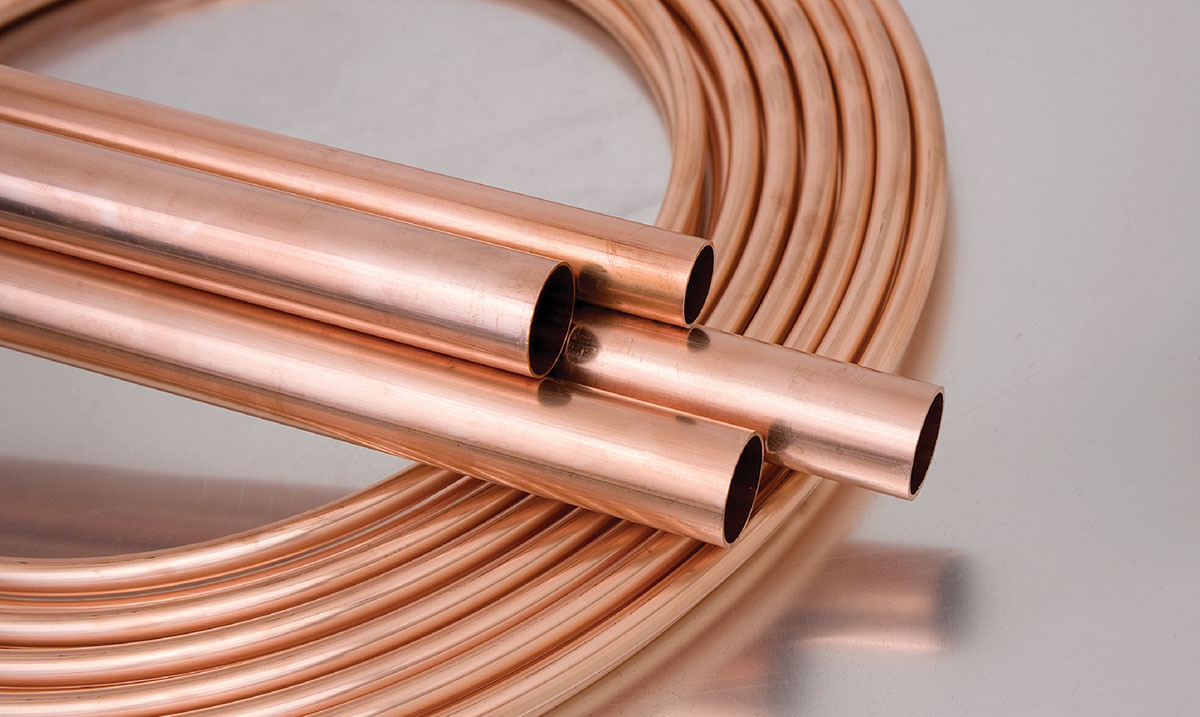Enhancing Your Kitchen Area with Costs Copper Products: Tips and Best Practices
Checking Out the Diverse Applications of Copper Products in Modern Industries
Copper items have actually established themselves as crucial elements throughout a myriad of modern-day industries, mostly as a result of their remarkable conductivity, pliability, and resistance to rust. From improving the effectiveness of electrical systems to playing a vital function in sustainable energy technologies, the convenience of copper is apparent. Its recyclability placements it as a sustainable option in manufacturing and electronic devices. As industries progressively focus on technology and sustainability, the diverse applications of copper warrant a closer evaluation, especially concerning their possible influence on future technical advancements and environmental practices.
Electric Applications of Copper
Copper is an important material in the electrical sector, making up roughly 60% of the complete need for non-ferrous metals around the world - Copper Products. Its superior electric conductivity, which is almost two times that of light weight aluminum, makes it the favored choice for a large range of electric applications. From electrical wiring systems in household and commercial buildings to high-voltage power transmission lines, copper makes sure performance and integrity in electricity distribution
In addition to circuitry, copper is essential to the manufacturing of electrical parts such as generators, motors, and transformers. These components leverage copper's thermal conductivity and pliability, necessary for heat dissipation and efficient performance. Furthermore, copper's resistance to corrosion enhances the life expectancy and resilience of electric systems, making it an affordable solution in the long-term.
The development of renewable resource sources, such as solar and wind power, has actually better enhanced the demand for copper in electrical applications. As industries change in the direction of lasting power remedies, copper's duty comes to be much more vital. On the whole, the adaptability and efficiency features of copper strengthen its status as a foundation product within the electric market, driving technology and performance throughout numerous applications.
Plumbing and Piping Solutions
In modern plumbing systems, the selection of products considerably influences both functionality and durability. Copper has emerged as a preferred option because of its special homes, including deterioration resistance and antimicrobial features. These features make certain that copper piping stays secure and long lasting for moving drinkable water, an important factor to consider in household and business applications.
Among the key benefits of copper in pipes is its capability to withstand heats and stress, making it ideal for a variety of applications, from warm water systems to home heating and cooling down networks. Furthermore, copper's flexibility permits for simpler installation in intricate piping formats, lowering the danger of failings and leaks.
One more noteworthy advantage is copper's lengthy lifespan, usually surpassing 50 years with appropriate maintenance. This long life not just reduces replacement expenses however also adds to lasting methods by reducing waste. Moreover, copper's recyclability aligns with modern-day environmental requirements, advertising a round economic situation within the pipes sector.
Copper in Renewable Resource
The versatility of copper expands past plumbing applications, playing an essential duty in the eco-friendly energy sector. In solar panels, copper is made use of in photovoltaic or pv cells and wiring, promoting reliable power conversion and transmission.

Additionally, as Read Full Report the worldwide demand for electric lorries (EVs) increases, copper's role in battery systems and charging facilities ends up being also a lot more significant. The material's capacity to conduct electrical energy successfully is indispensable to the performance of EV batteries, improving range and charging speed.
Copper's Duty in Electronic devices
Electronic devices producing depends heavily on copper's extraordinary residential or commercial properties, especially its high electrical conductivity and thermal efficiency. These attributes make copper an optimal selection for a variety of electronic parts, including connectors, motherboard, and wiring. The metal's ability to successfully transmit electric signals ensures minimal power loss, which is essential in high-performance electronic devices.
Moreover, copper's thermal conductivity plays a considerable function in heat dissipation, shielding delicate elements from overheating. This is especially important in modern-day electronics, where portable styles lead to enhanced warmth generation. Copper is likewise favored for its pliability and ductility, enabling it to be conveniently formed into complex designs that fulfill the demands of advanced digital applications.
With the rise of consumer electronics, telecoms, and electrical cars, the demand for copper in the electronic devices field continues to grow. Thus, copper stays a foundation product in the ever-expanding area of electronic devices.
Cutting-edge Makes Use Of in Production

One notable application remains in additive production, where copper-based materials are used in 3D printing processes. This enables for the creation of intricate geometries and light-weight parts, especially in the aerospace and vehicle sectors. Additionally, copper's thermal conductivity makes it an ideal option for warmth exchangers, improving browse around these guys efficiency in industrial air conditioning systems.
Furthermore, the increase of clever manufacturing has seen the consolidation of copper in IoT devices, where its conductive abilities sustain innovative sensing technologies. In the realm of renewable resource, copper is pivotal in the production of solar panels and wind turbines, assisting in extra reliable energy conversion and distribution.
As industries pursue sustainability and development, copper's versatility and efficiency proceed to place it as a critical material, driving advancements in manufacturing and contributing to the growth of smarter, extra reliable items.
Conclusion
In summary, copper products demonstrate remarkable versatility across numerous modern-day sectors. Copper Products. Their exceptional conductivity improves electrical applications, while corrosion resistance ensures integrity in pipes. The indispensable duty of copper in renewable resource and its important feature in electronic devices underscore its importance beforehand lasting methods. Additionally, innovative uses in producing highlight copper's flexibility and withstanding importance. Jointly, these applications show copper's essential contribution to technological progression and industrial efficiency in modern society.
From visit the site improving the efficiency of electric systems to playing a crucial function in eco-friendly energy modern technologies, the convenience of copper is apparent. As sectors increasingly prioritize technology and sustainability, the varied applications of copper warrant a closer examination, especially concerning their possible impact on future technological developments and environmental practices.
The growth of renewable energy resources, such as solar and wind power, has actually even more boosted the need for copper in electric applications. Overall, the convenience and efficiency qualities of copper solidify its standing as a cornerstone material within the electrical market, driving advancement and performance throughout numerous applications.
The convenience of copper expands past pipes applications, playing a vital function in the eco-friendly power field.